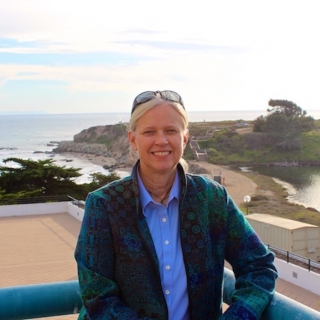Kathy Foltz

After earning a BS in Biological Sciences at Bowling Green State University (Ohio), Dr. Foltz pursued her PhD at Purdue University (1985-1989), where she worked with Dr. David Asai on the cell biology and biochemistry of microtubule based motility. She then pursued postdoctoral research as an NRSA-NIH Postdoctoral Scholar at the State University of New York-Stony Brook with Dr. William Lennarz, studying the molecular basis of gamete recognition in echinoderms. Dr. Foltz joined the faculty at UCSB in 1993.
Her research is focused on elucidating the molecular mechanisms of gamete recognition and subsequent egg activation. Fertilization triggers extremely rapid and dramatic changes in the composition and architecture of protein complexes in the egg. These changes ultimately manifest in the ability of the activated egg to transition to an embryo. They use many species of marine invertebrates, such as sea urchins, sea stars and ascidians, to address these phenomena. Both large-scale biochemical approaches (including high throughput proteomic analyses) as well as single cell (microinjection and microscopic imaging) experiments can be conducted using the large, synchronously-developing eggs of these free spawning animals, which share the basic aspects of egg activation with other species, including mammals.